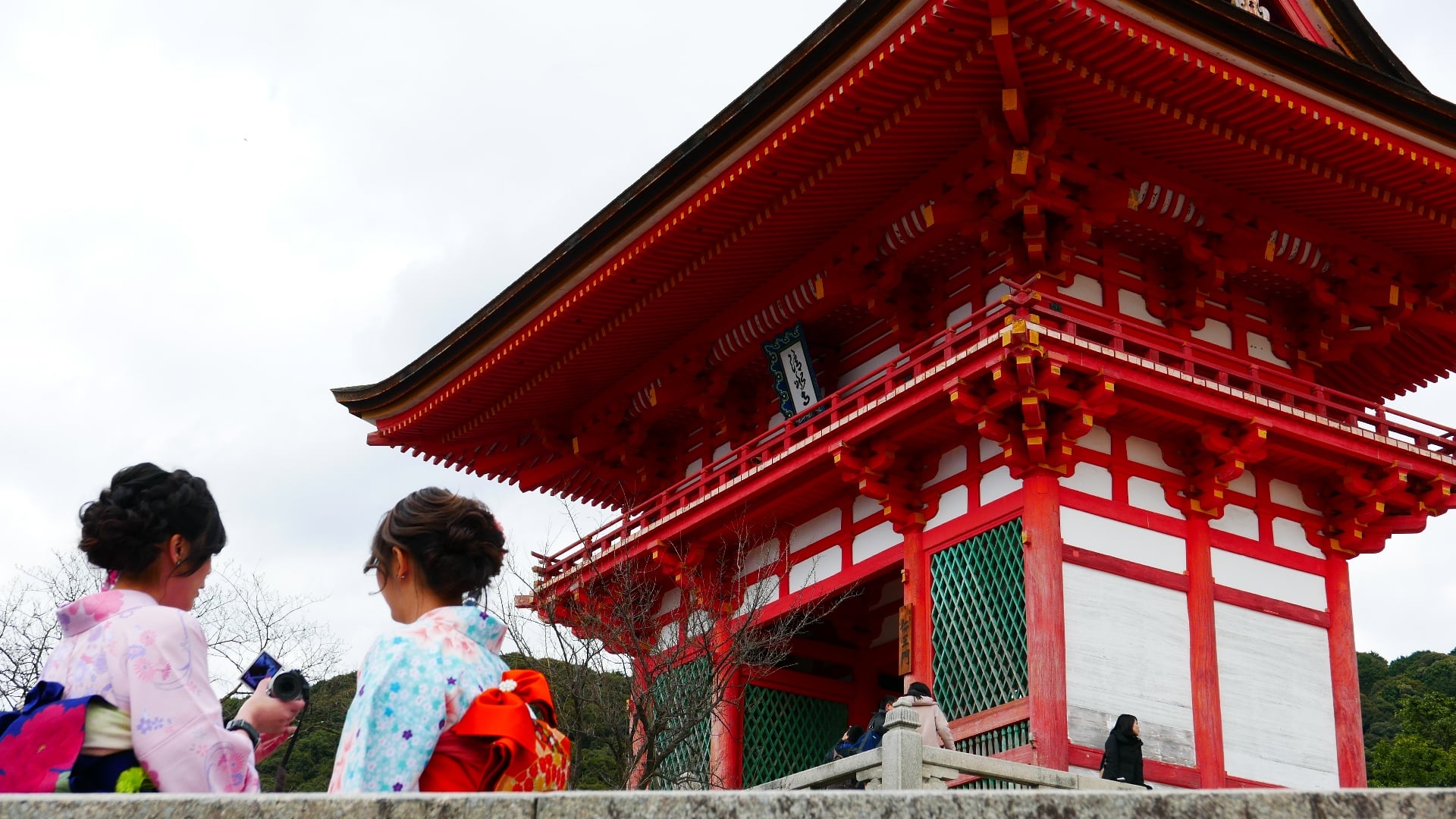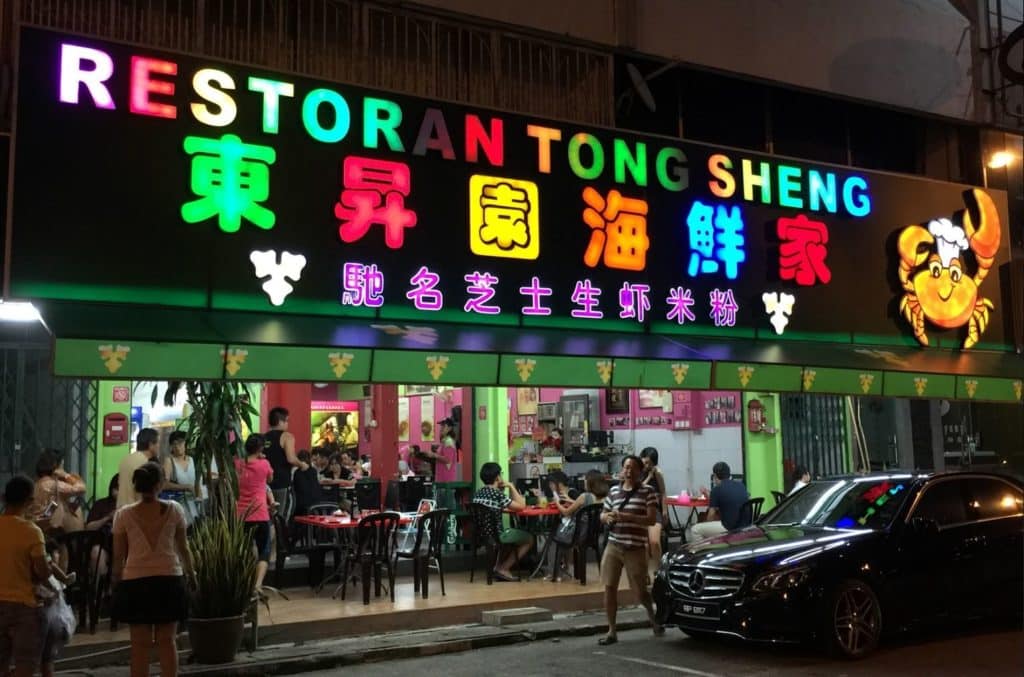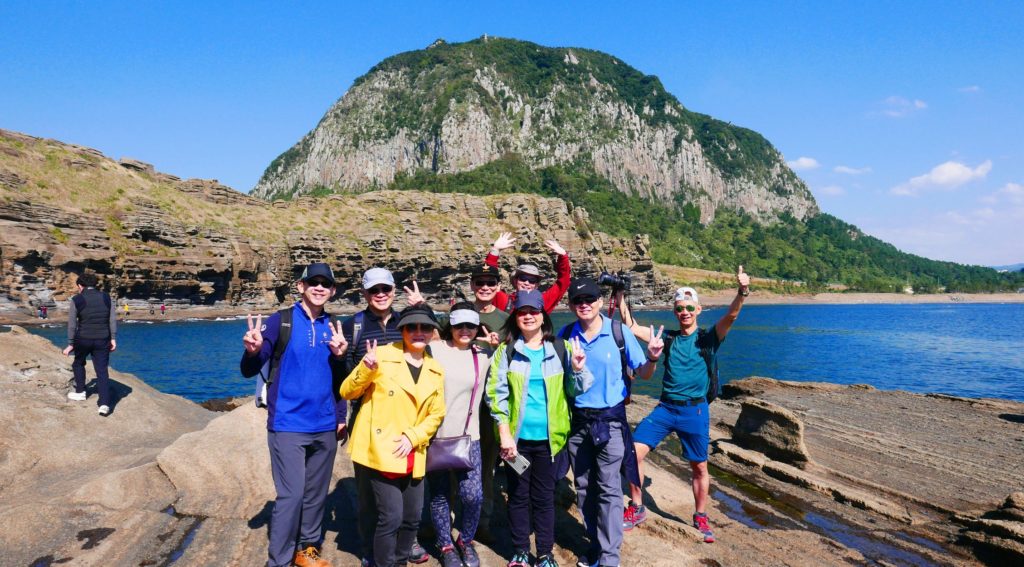17 Dec 2016 : Today is our last full day in Kyoto. Tomorrow we’ll be heading to Nagoya for another night before flying home the following day.
The plan for today is a little lighter than yesterday’s trip to Arashiyama region. On the list of places to visit are Nishiki Market, Kiyomizudera and Fushimi Inari Taisha.
Nishiki Market
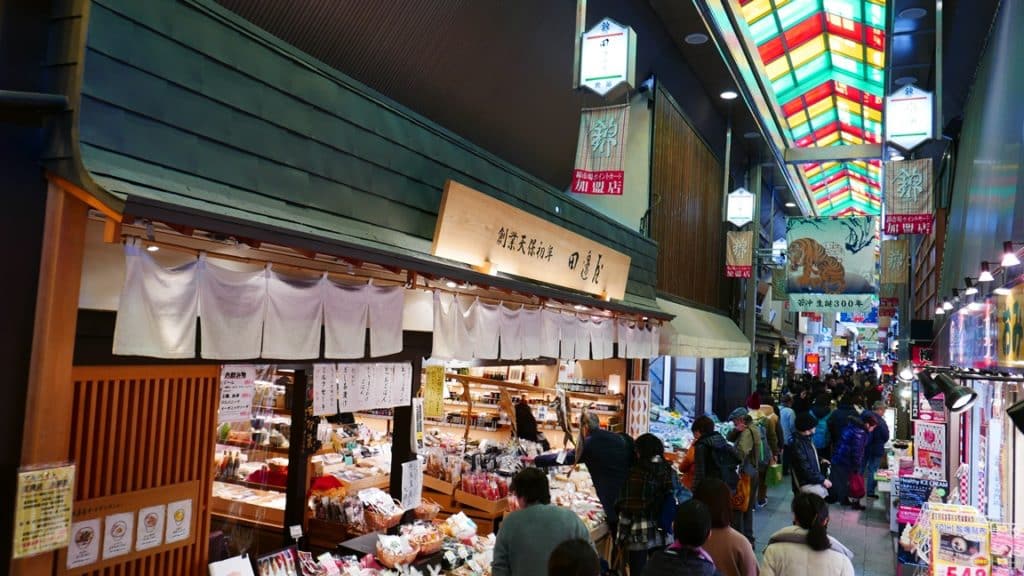
Nishiki Market is a nice change of scene from temple visits. We skipped breakfast this morning so as to savour Nishiki’s wide range of delectable food. First stop was the famed fresh shellfish eatery, the first corner stall as you enter Nishiki from Takakura St.
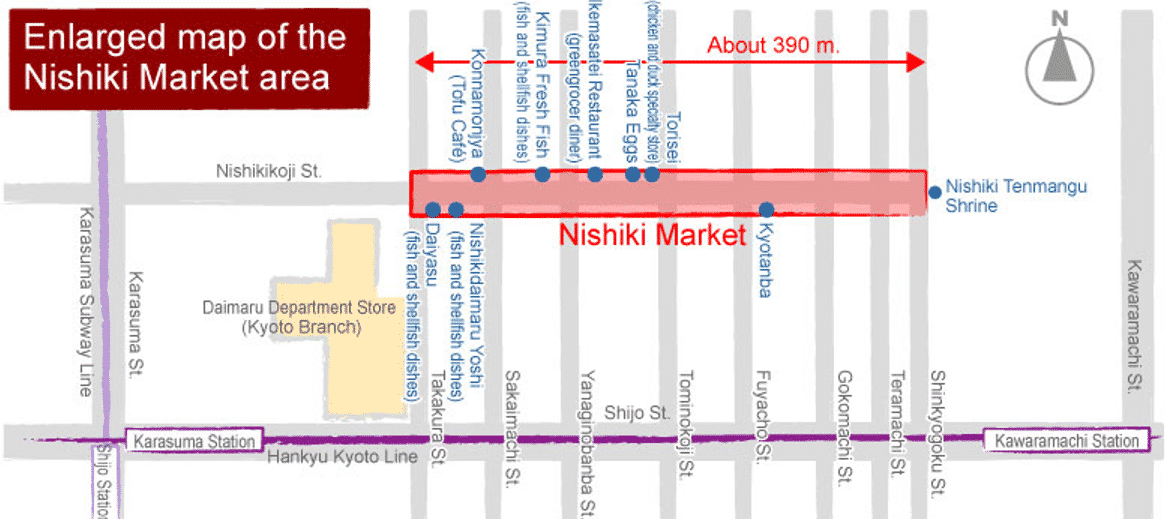
When we arrived at 11.30am, half an hour before opening there was already a short queue. We were assigned seats for the 5 of us in the first round of seating. Be informed that everyone in the party must be present to be allowed in. We ordered fresh Hokkaido oysters, roasted Hotate Yaki (roasted scallop), rice cakes and a clear Namabe Yuba soup. It was a light but delightful lunch.
[photogrid ids=”2353,2354,2355,2356,2359,2360″ captions=”yes” columns=”six” fullwidth=”yes” ]
The 400-year old Nishiki market occupies a five-block long shopping street lined by more than a hundred traditional shops and restaurants. It offers a glimpse of Japan centuries past. You’ll find local produce, Kyoto specialties, fine tableware, Japanese sweets, pickled vegetables, dried seafood, sake, oysters, ice cream, cakes, and more, much more. Our favourite dessert from one of the shops here is the powdered green tea mochi (rice cakes). You may request for shishoku (free tasting sample) if you want to try before buying.
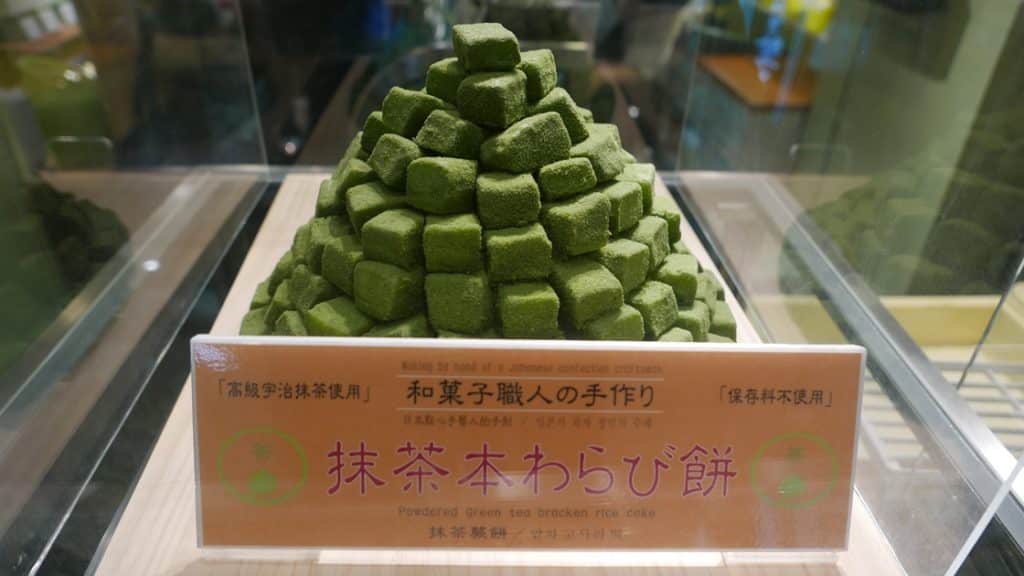
The market is open 7 days a week from 9 am to 6 pm, but avoid Wednesdays as most shops are closed.
Kiyomizudera
Kiyomizudera is one of the must see places of interest in Kyoto which we missed during last year’s trip here.
Kiyomizudera (清水寺) means “Pure Water Temple”. It is one of the most revered temples in Japan. Founded in 780 on the site of the Otowa Waterfall in the wooded hills east of Kyoto it derives its name from the fall’s pure waters. Kiyomizudera is best known for its wooden stage that juts out from the main hall, 13 meters above the hillside below. The stage gives visitors a great view of the colourful cherry and maple trees below as well as the city of Kyoto in the distance.
Even more amazing, the majestic main hall and the massive wooden stage were built without the use of nails. And it has stood for centuries withstanding the harsh elements of weather and the destructive force of earthquakes. What a testament to Japanese craftsmanship and architectural skills.
Kiyomizudera suffered the same fate as most of Japan’s historic temples during Japan’s long history of feudal wars. Most of the buildings were destroyed by fire on numerous occasions. Thanks to the devotion of the temple’s faithful followers, the temple was rebuilt time and time again. Most of the present buildings were reconstructed in 1633. In 1944, Kiyomizudera Temple was registered on UNESCO World Cultural Heritage List as one of the Historic Monuments of Ancient Kyoto.
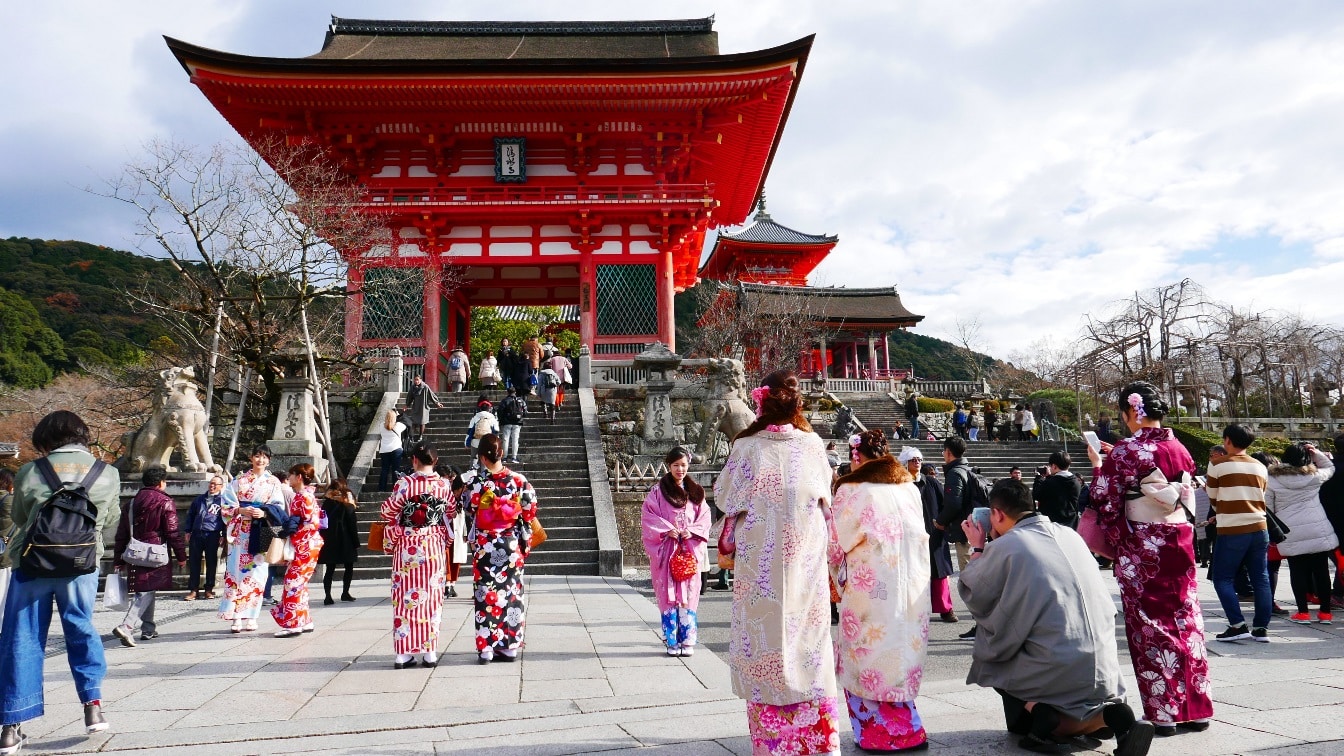
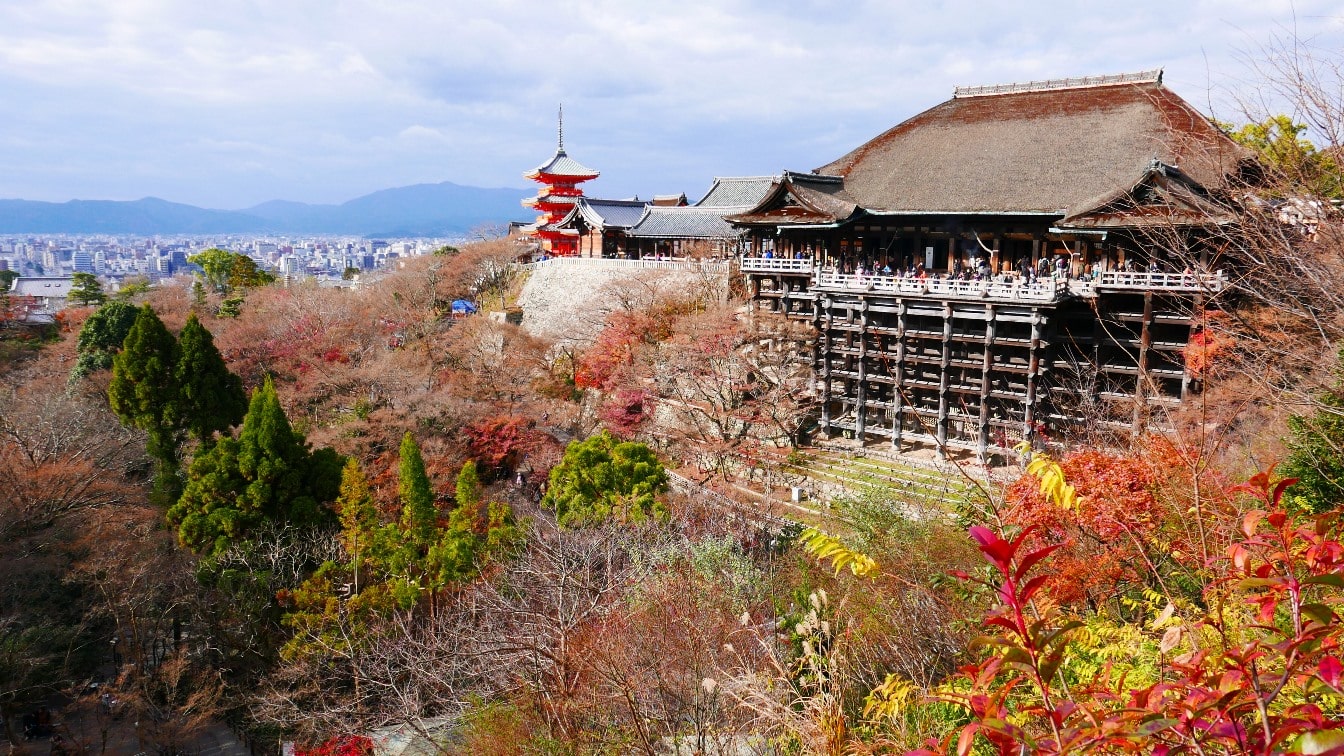
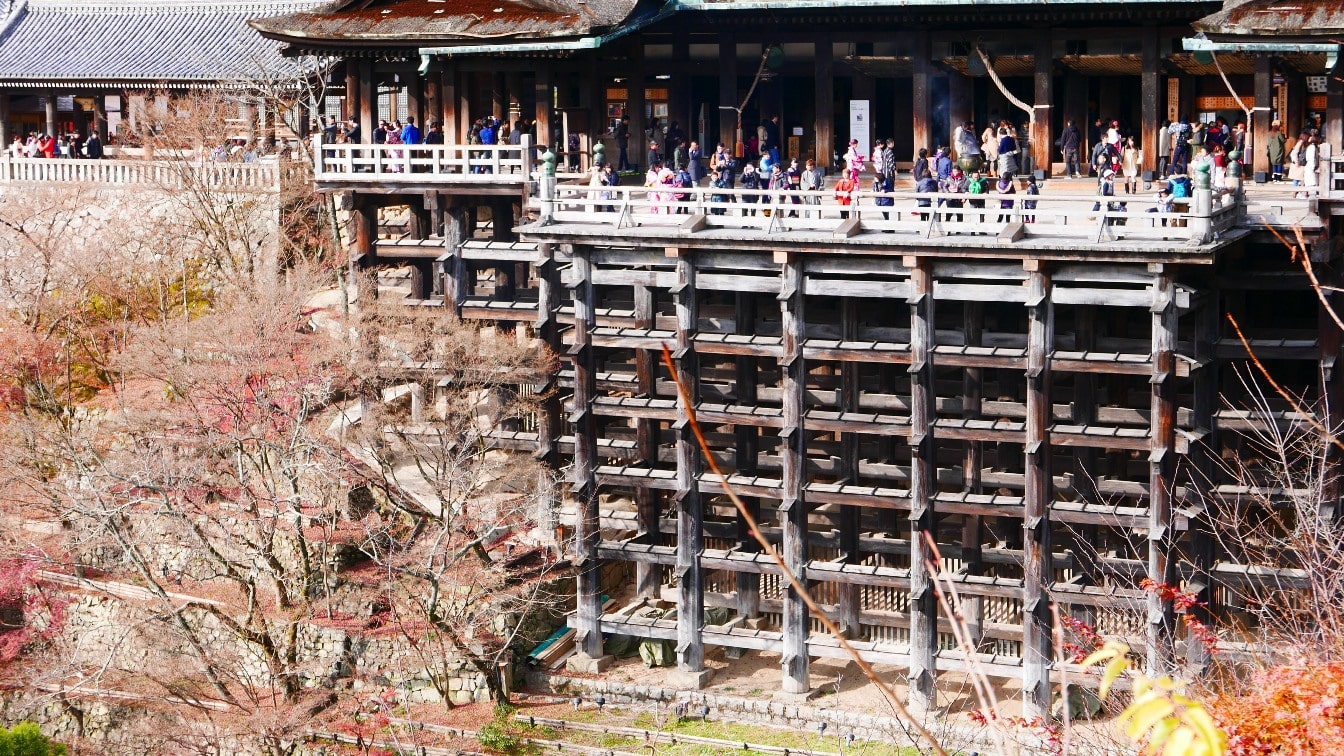

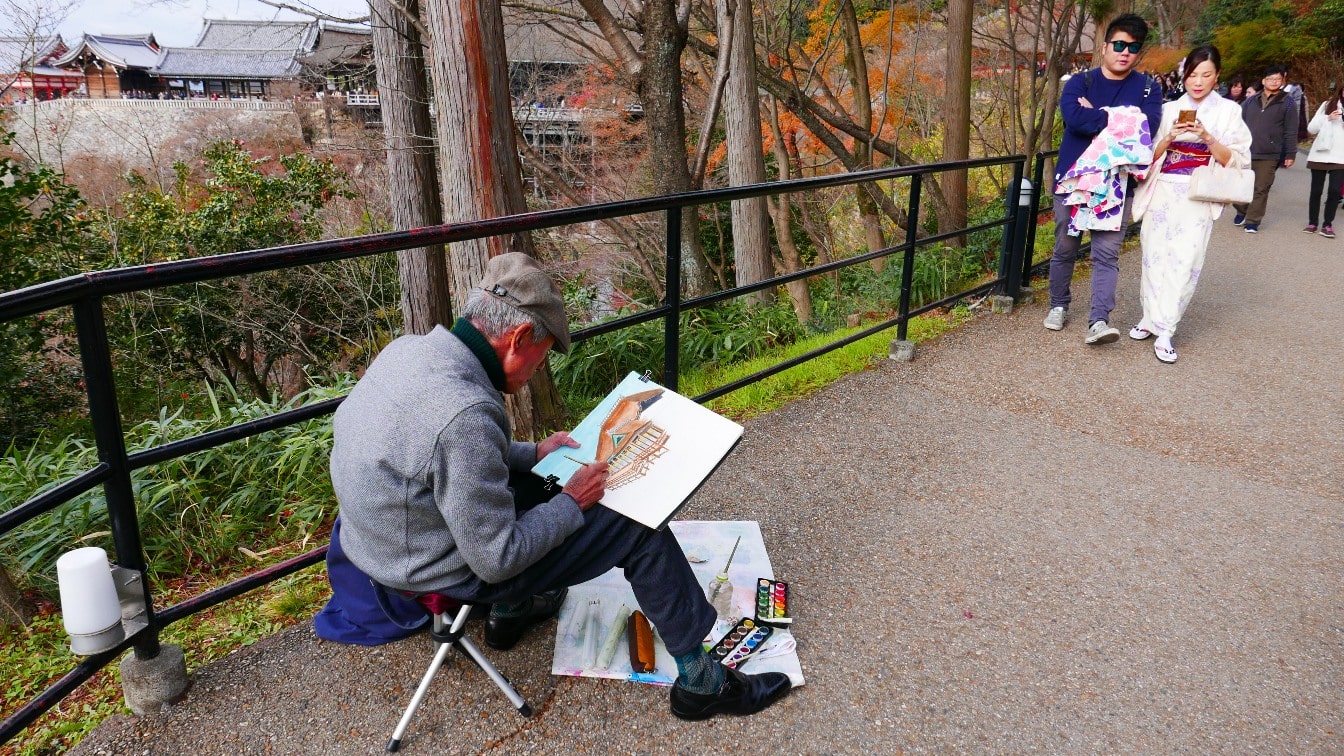
Kiyomizudera Temple Opening Hours and Admission
Opening Hours: 6 am to 6 pm with some days closing at 6.30 pm depending on the season. During the special night viewing periods the gate is closed once at the ordinary closing time and later re-opened. For details visit Kiyomizudera official site.
Entrance fees: ¥300 for adults
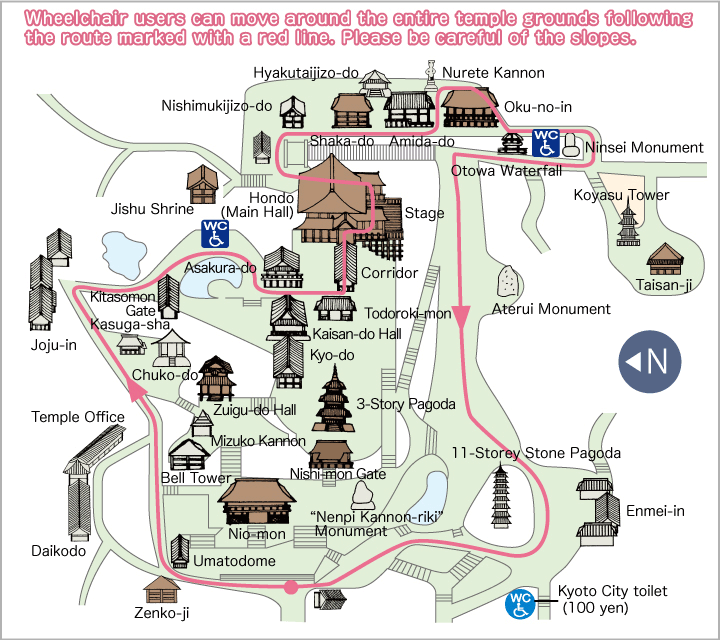
Fushimi Inari Taisha
Fushimi Inari Taisha is perhaps the most photographed landmark in all Japan. We were here last year in the morning but the direction of the sun was not favourable for photography. So we’re back here again.
We arrived at around 3.30 pm. The crowd was still sizable. And the angle of the setting sun was perfect for capturing the deep orange hues of the famous giant Torii Gate and the Romon Gate at the shrine’s entrance.
It was almost nightfall when I finished taking pictures. There wasn’t enough time to do the 3 hour hike up Mt Inari so we plan to be back here tomorrow for the climb.
To learn more about this famous shrine visit the Fushimi Inari Taisha official site.
- Opening Hours: 7 am to 6.30 pm daily
- Admission: Free
- Parking: Free
- GPS: 075-641-7331
Related Posts:
Day 1: Nagoya to Ise-Shima
Day 2: Exploring Ise-Shima and Ago Bay
Day 3: Scenic Drive From Shima to Shingu
Day 4: Paying Homage to the Historic Shrines of Kumano
Day 5: Driving from Shingu to Kyoto
Day 6: Exploring Arashiyama and Ancient Kyoto
Learn more about Driving in Japan
- Dalat | Vietnam Trip Part 3 - May 4, 2023
- Danang, Hoi An, Hue, My Son | Vietnam Trip Part 2 - May 1, 2023
- Ho Chi Minh City, Cu Chi Tunnels & Cao Dai Temple | Vietnam Trip Part 1 - April 30, 2023
